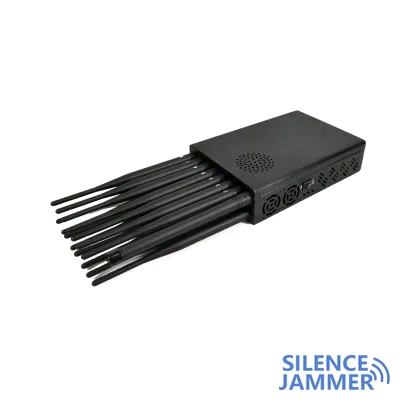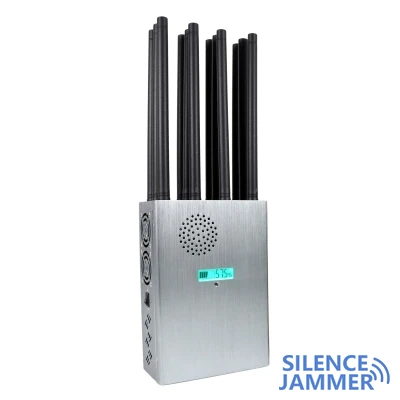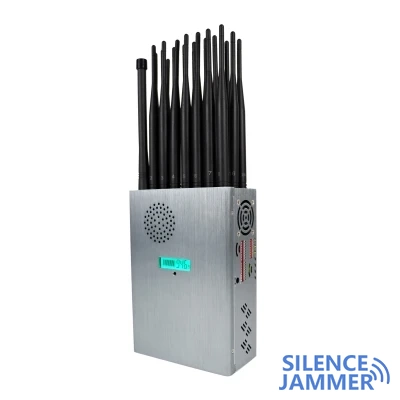The installation of phone jammers has led to communication obstruction for surrounding residents
In order to curb prisoners from committing crimes through mobile phones, 10 mobile phone signal jammers were recently installed in the Hindalgar Central Prison in Mangalore. The original intention of this measure was to prevent mobile phones from being smuggled into the prison and ensure that communications within the prison were completely controlled. However, this measure has brought unexpected troubles to surrounding residents and office institutions - not only affecting their daily lives, but also triggering a large number of complaints.
Colleges and offices: mobile phone signals collectively "failed"
A lecturer at Kanara College initially thought his phone was broken and sent it to the service center for inspection, but was eventually informed that there was no problem with the device. At the same time, students at the college found that any attempt to access social media platforms failed. Jaina, an administrative staff member of the college, said that since the jail installed the signal jammer, the mobile phone signal of the entire campus has been paralyzed for three days.
Not only the school, but also the LIC office near the jail has been affected. The staff failed to respond to customers' needs in time because they could not answer the phone normally, which caused a lot of complaints from customers. Since the prison jammer was activated, the signal within a radius of 100 meters from the prison has been almost completely blocked, which has greatly affected the lives of many residents.
The original intention of the prison jammer: to curb illegal communications of prisoners
The installation of the Hindalgarh Central Prison originated from the rampant mobile phone smuggling activities inside the prison. According to the prison, since V Krishnamurthy took office as the warden of the DK District Jail in December last year, 50 illegal mobile phones have been confiscated in just a few months. These mobile phones are often thrown into the prison in the early morning, and are even cleverly hidden under tiles or behind the TV, making it difficult for prison administrators to guard against them.

In response to this situation, the prison management decided to install signal blocker jammers to block all mobile phone signals in the prison. According to prison insiders, these devices cover a radius of 100 meters and almost completely block 2G, 3G and 4G frequencies. Despite this, the powerful function of the signal jammers has inadvertently affected the surrounding communities.
Dissatisfaction of local residents and institutions: Calls for adjustment of jammer frequencies
While the installation of phone signal jammers has obviously played a positive role in the security situation in the prison, its side effects have caused dissatisfaction among surrounding residents. Teachers and students of Canara College and nearby residents complained that the signal blocking range of the signal jammers was too large and had affected their normal life and work. In the past three days, students have been unable to access the Internet to check information, and nearby offices have been unable to handle customer requests in a timely manner.

In response, the prison expressed understanding and promised to take measures to adjust the frequency of the jammer devices to reduce the impact on the surrounding communities. However, adjusting the range and intensity of signal blocking is not an easy task, especially when ensuring the safety of the prison while balancing the impact on the surrounding residents.
Expanding to other areas: More prisons join the ranks of signal jammers
Mangalore Prison is not an isolated case. Similar signal jammers have been installed in central prisons in Bangalore, Mysore, Belgaum and Dharwad. As prisons across India follow suit, aiming to prevent prisoners from illegally communicating through technical means, the side effects of this security measure have also caused similar controversy in other regions.
Faced with these challenges, prison authorities must find a balance between ensuring safety and ensuring normal communications for surrounding communities. Especially with the continuous advancement of mobile phone technology, how to effectively control illegal communications in prisons without affecting innocent residents has become an urgent problem for the authorities to solve.
How to strike a balance between safety and convenience?
Although mobile phone signal blockers play an important role in preventing prisoners from abusing communication devices, their impact on the lives of surrounding residents cannot be ignored. In the future, prison authorities need to find more intelligent signal blocking technology to accurately cover the internal areas of the prison while reducing the negative impact on the surrounding communities. While improving security precautions, the communication rights and interests of surrounding residents should also be protected. This will be the key to balancing safety and convenience.




